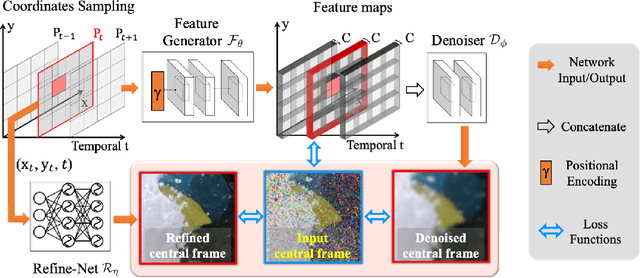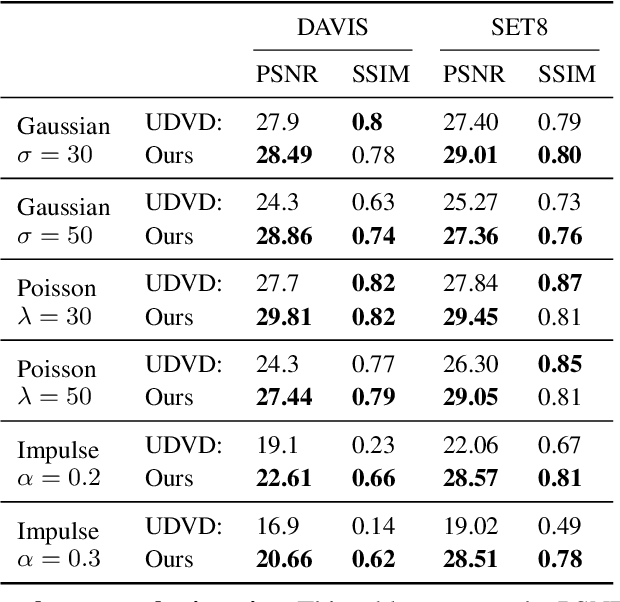Reda Chalhoub
Unsupervised Microscopy Video Denoising
Apr 17, 2024



Abstract:In this paper, we introduce a novel unsupervised network to denoise microscopy videos featured by image sequences captured by a fixed location microscopy camera. Specifically, we propose a DeepTemporal Interpolation method, leveraging a temporal signal filter integrated into the bottom CNN layers, to restore microscopy videos corrupted by unknown noise types. Our unsupervised denoising architecture is distinguished by its ability to adapt to multiple noise conditions without the need for pre-existing noise distribution knowledge, addressing a significant challenge in real-world medical applications. Furthermore, we evaluate our denoising framework using both real microscopy recordings and simulated data, validating our outperforming video denoising performance across a broad spectrum of noise scenarios. Extensive experiments demonstrate that our unsupervised model consistently outperforms state-of-the-art supervised and unsupervised video denoising techniques, proving especially effective for microscopy videos.
Unsupervised Coordinate-Based Video Denoising
Jul 01, 2023



Abstract:In this paper, we introduce a novel unsupervised video denoising deep learning approach that can help to mitigate data scarcity issues and shows robustness against different noise patterns, enhancing its broad applicability. Our method comprises three modules: a Feature generator creating features maps, a Denoise-Net generating denoised but slightly blurry reference frames, and a Refine-Net re-introducing high-frequency details. By leveraging the coordinate-based network, we can greatly simplify the network structure while preserving high-frequency details in the denoised video frames. Extensive experiments on both simulated and real-captured demonstrate that our method can effectively denoise real-world calcium imaging video sequences without prior knowledge of noise models and data augmentation during training.
 Add to Chrome
Add to Chrome Add to Firefox
Add to Firefox Add to Edge
Add to Edge